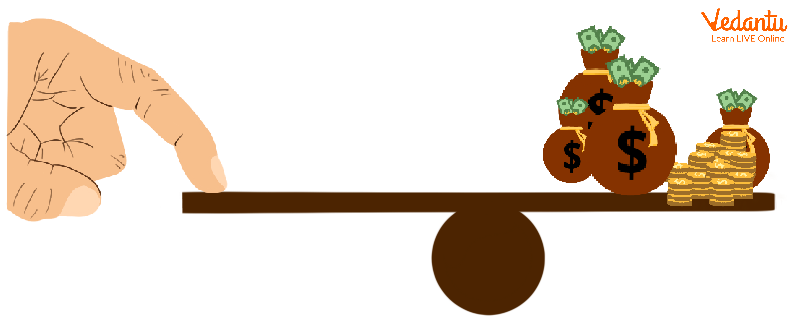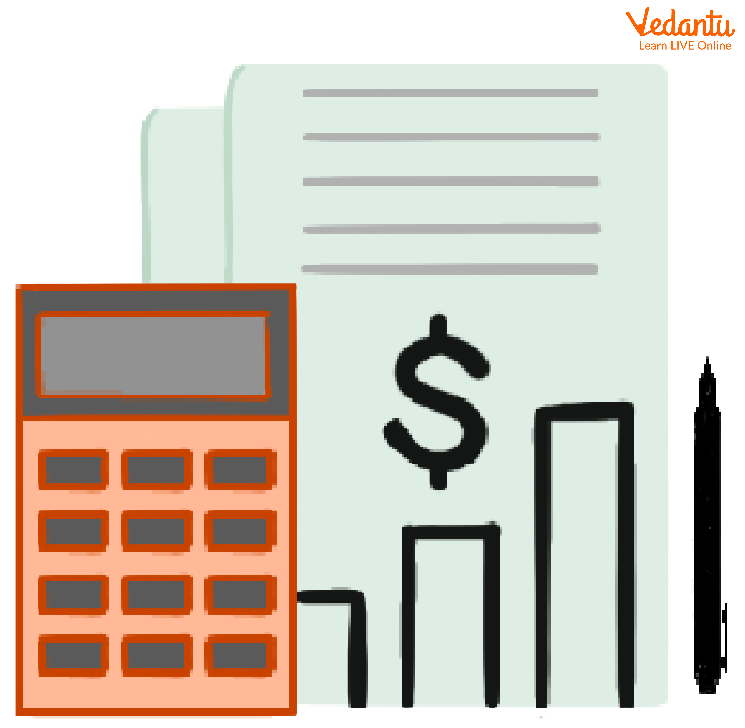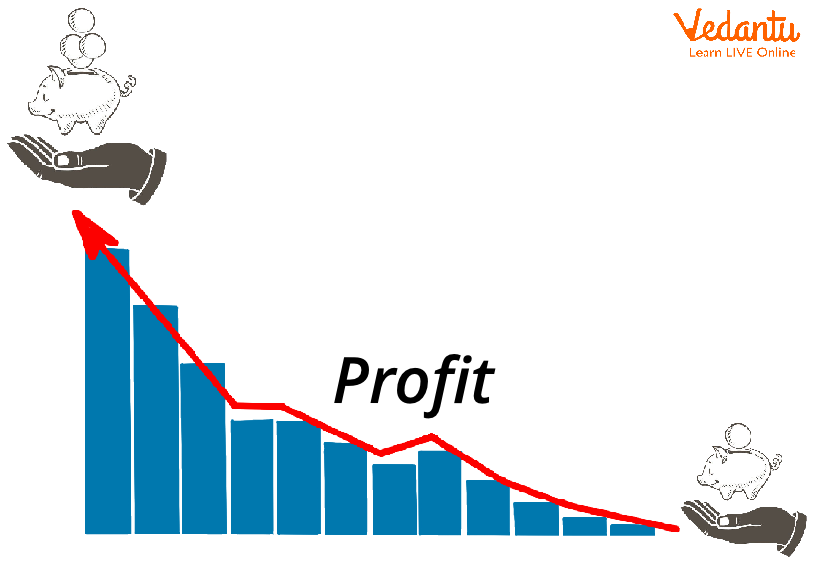




What Is a Cash Budget?
The cash budget is a unique budget that forecasts cash flows and outflows for a certain period. Debtor payments, bill payments, interest from loans, stock dividends, and gains from selling fixed assets all factor into this picture. On the other hand, cash utilisation includes salary, rent, mail, telephone, and entertainment costs, payments to creditors and the purchase price of assets are all cash budget examples.

Balancing of Cash
Forecasted cash inflows and outflows are detailed in the cash budget format. A cash budget is a financial plan that forecasts a company's cash inflows and outflows. Notably, a cash budget summarises projected cash flows, allowing businesses to make projections about their future access to cash. Financial strategies prepare a cash budget for lower and higher cash flow.
A low rate of return suggests that the company has not maximised its cash flow. Because of insufficient funds, the company will not be able to pay its bills on time. In general, businesses should maintain a cash position sufficient to cover their expected cash needs, with some cushion for surprises.
Why Create a Cash Budget?
For several reasons, it's crucial to have a monetary budget. One benefit is the increased autonomy in financial decision-making (or cash reserve). You could not be aware of your company's cash flow if you didn't implement a budgeting method. A cash budget is a financial plan that estimates how much money will come into a firm and how it will be used each month.

Cash Budgeting
You may assess and prepare for capital requirements using a cash budget PDF. Using the cash budget, you may determine whether there are any points in your business cycle when you can benefit from some quick financing. Long-term financing requirements might get a better evaluation. A cash budget is a planning instrument for managerial decision-making.
Advantages and Benefits of a Cash Budget
You don't need to go into debt: One may avoid debt if spending limits available funds. The inability to buy anything further after currency depletes. That's why it's essential to have some spare cash in hand when unexpected events arise.
Your budget improves: Households and organisations are motivated to practice more responsible financial management when restricted to using only cash. In a plan like this, there are no wiggle room expenses. Whether you're able to make ends meet and live comfortably or not is entirely up to you.
More resourceful: A cash budget forces you to be creative and locate savings you wouldn't usually look for. You must discover a cash budget method to conserve money, including cutting off unnecessary spending.
You keep in touch with reality: Most people avoid looking at their invoices because doing so makes them feel less responsible for paying them. A monetary budget forces you to face harsh realities. You should review your bank statements, credit card statements, credit card bills, and any other debts or responsibilities you may have.
You can see flaws fast: When working off a cash budget, you can rapidly decide whether you'll have enough cash to satisfy commitments. If not, you'll be able to activate a corrective action to guarantee you can reach the budget estimations.
You may discuss finances: When using a cash budget, it's much simpler to explain where your money stands right now. However, budget stakeholders may foresee potential problems by comparing cash inflows and outflows and plan accordingly with the importance of cash budget.
Functions of Cash Budget

Cash Analysis
The following are some of the primary uses of cash budget:
Estimating future monetary needs: Cash budgets help assess future cash flow budgeting needs. This helps determine when it is best to make cash-related purchases for maximum profit.
Money position: Whether the company is running a deficit or surplus in cash at a given moment is reflected in this budget, allowing upper management to make informed decisions about whether to make short-term or long-term investments.
Budgeting one's monetary outlays: It's not easy to change department budgets after they've been created, so everyone attempts to do with what they've got.
Strategies for growth: Expansion occurs when resources are abundant. Therefore, a cash budget is a tool for integrating growth initiatives.
Effective dividend policy: A healthy dividend strategy might benefit from a simple cash budget. Investors value cash dividends more highly than other forms of dividend payout because they indicate the company's financial health.
Conclusion
An organisation uses a cash budget to evaluate its financial position for a specific period. Businesses may evaluate their cash management by comparing their actual cash outflows with their planned cash inflows, which is made possible with a cash budget. There is the option of a short-term cash budget, which covers a period of weeks to months, and a long-term cash budget, which covers years—optimal cash flow results from carefully managing a company's revenues and costs.
FAQs on Cash Budgeting: Everything You Need to Know
1. How to prepare a cash budget?
This is one of the cash budget problems. Before developing a cash budget for the business, it is essential first to generate estimates of the company's cash flows and expenditures that are as precise as possible. Rent and salary are two kinds of predictable cash inflows that may serve as models for financial budgets. Budgets can be created based on these types of cash inflows. Other indications, such as the number of sales, on the other hand, are more likely to be prone to change.
2. What should you put in your cash budget?
A cash budget should include anticipated cash inflows like income and predicted financial outflows like returns, wages, rent, utilities, and supplies. The period the budget is being developed will determine how this will play out. A cash budget only for a few weeks or less will only consider the day-to-day costs associated with the funding and supplying a company's operations. In contrast, a cash budget for a quarter or longer may also consider the larger costs associated with equipment, capital investment, and corporate taxes.
3. How often should you revise your cash budget?
As per the advice, the businesses regularly revise their cash flow budgets. However, depending on the company's requirements, the budget may get a fix at varying intervals. If possible, you should evaluate your financial situation at the end of each month and then use what you learn in budgeting for the next month. At the very least once a year, you need to find some quiet time to review both your whole budget and your overall financial objectives.























